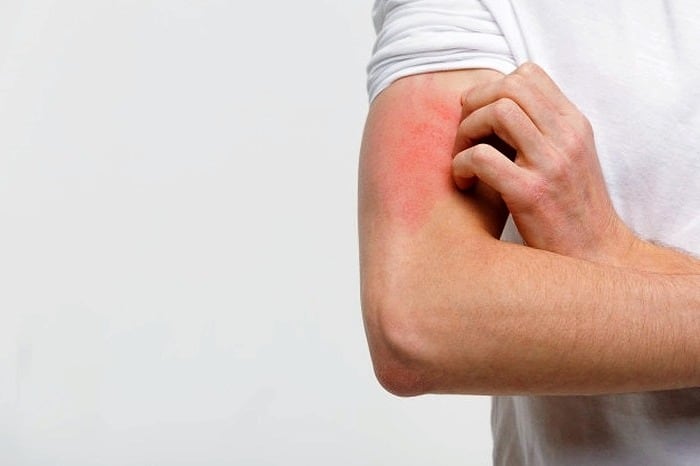Contact Dermatitis (Eczema)
Contact Dermatitis (Eczema)
Book Now
Contact Dermatitis (Eczema)
What is Eczema?
Eczema, also known as dermatitis, refers to a group of skin conditions that manifest in different ways. It typically develops as red rashes, flaking, cracking, and fluid buildup on the skin. If left untreated, eczema can become a chronic condition.
What are the Symptoms of Eczema?
- Redness of the skin
- Flaking or scaling
- Cracking
- Thickening of the skin
- Fluid buildup in the affected areas
Where Does Eczema Appear?
Eczema is most commonly seen on the hands and neck, but it can develop anywhere on the body.
Is Eczema Contagious?
Eczema is not a contagious disease. However, due to its appearance, it can be aesthetically uncomfortable or bothersome.
What Causes Eczema?
Eczema, known medically as dermatitis, is a common skin condition with many potential causes. The skin reacts to internal and external allergens by triggering an inflammatory response that results in eczema. Prolonged exposure to chemicals like detergents, soaps, disinfectants, shampoos, and cleaning agents can cause eczema. Additionally, stress and a weakened immune system can contribute to its development.
Tips for Preventing Eczema:
- Moisturizing the skin and living a stress-free life are crucial factors in managing and preventing eczema.
- Use shampoos and creams that are suitable for the skin and do not have a drying effect.
- Identify allergens that cause skin reactions and avoid them.
- Wear protective clothing such as face masks, goggles, gloves, and other protective gear to prevent contact with potential triggers.
Eczema Treatment:
-
Topical Corticosteroid Medications: These should always be used under the supervision of a doctor. The strength of the ointment or cream will depend on the severity of eczema and the specific area being treated.
-
Pimecrolimus Cream: This is a newer anti-inflammatory medication that is a good alternative to corticosteroid creams and has fewer side effects.
-
Antihistamines: Antihistamine tablets help control itching, especially when used at night. In more severe cases, corticosteroid tablets or phototherapy may also be prescribed.
Make an Appointment
The best way to enjoy a treatment at our salon is to book an appointment with the desired esthetician. Fill in the form below and we will contact you to discuss your appointment.